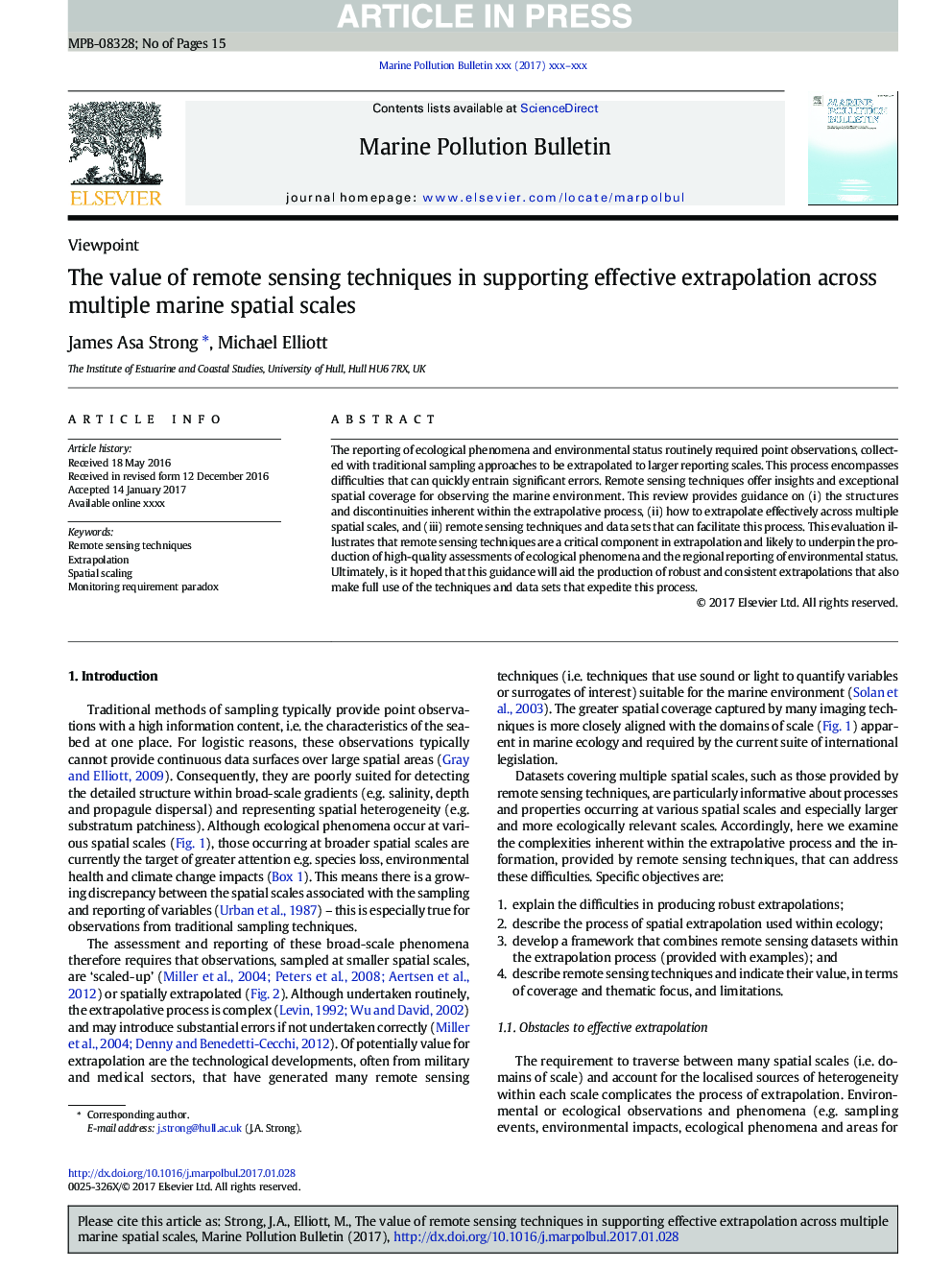| Article ID | Journal | Published Year | Pages | File Type |
|---|---|---|---|---|
| 5757619 | Marine Pollution Bulletin | 2017 | 15 Pages |
Abstract
The reporting of ecological phenomena and environmental status routinely required point observations, collected with traditional sampling approaches to be extrapolated to larger reporting scales. This process encompasses difficulties that can quickly entrain significant errors. Remote sensing techniques offer insights and exceptional spatial coverage for observing the marine environment. This review provides guidance on (i) the structures and discontinuities inherent within the extrapolative process, (ii) how to extrapolate effectively across multiple spatial scales, and (iii) remote sensing techniques and data sets that can facilitate this process. This evaluation illustrates that remote sensing techniques are a critical component in extrapolation and likely to underpin the production of high-quality assessments of ecological phenomena and the regional reporting of environmental status. Ultimately, is it hoped that this guidance will aid the production of robust and consistent extrapolations that also make full use of the techniques and data sets that expedite this process.
Related Topics
Physical Sciences and Engineering
Earth and Planetary Sciences
Oceanography
Authors
James Asa Strong, Michael Elliott,
